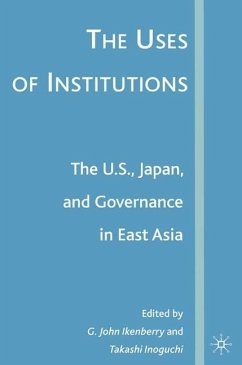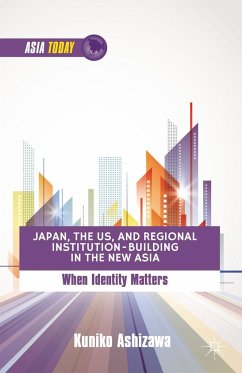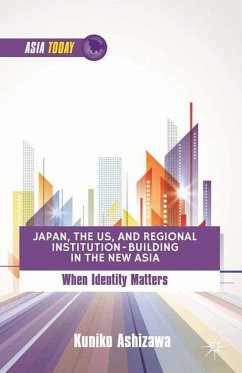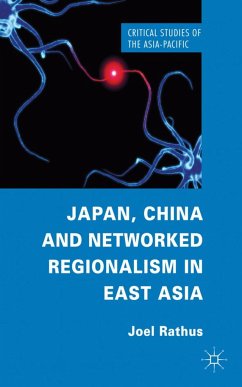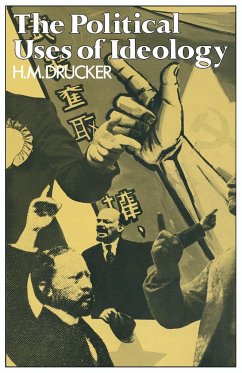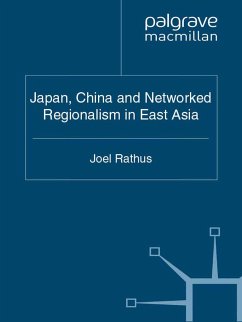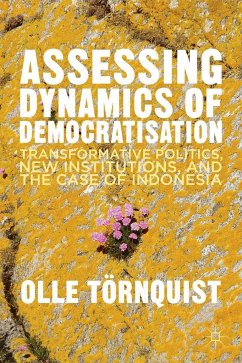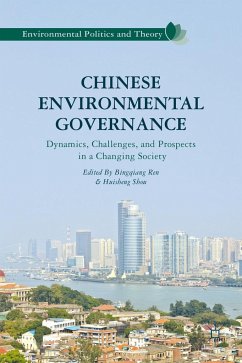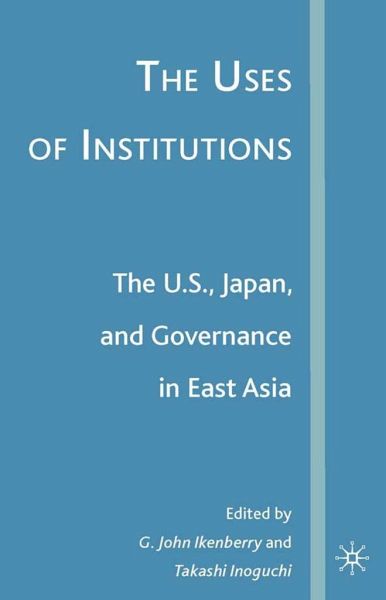
The Uses of Institutions: The U.S., Japan, and Governance in East Asia
Versandkostenfrei!
Versandfertig in 6-10 Tagen
38,99 €
inkl. MwSt.

PAYBACK Punkte
19 °P sammeln!
This book explores the ways that institutions play a role - or fail to - in Japanese and American approaches to regional governance in East Asia. It uses recent studies on the logic and dynamics of institutions to determine the logic of order within the East Asia region. The central focus is on bilateral and multilateral regional institutions.





